This article was co-authored by wikiHow Staff. Our trained team of editors and researchers validate articles for accuracy and comprehensiveness. wikiHow's Content Management Team carefully monitors the work from our editorial staff to ensure that each article is backed by trusted research and meets our high quality standards.
There are 17 references cited in this article, which can be found at the bottom of the page.
This article has been viewed 145,463 times.
Learn more...
We’ve all had those days where we just don’t feel like doing anything. You’ve been working hard all week, you haven’t gotten enough sleep and the more you tack onto you “to-do” list, the more your motivation seems to drain away. If you just can’t seem to get anything done no matter how hard you try, you may be in desperate need of an off day. Forget about running errands or even putting on actual clothes—just get comfy on the couch, grab a pint of ice cream and give yourself a day of rest and relaxation. You may be doing yourself more good than you realize.
Steps
Taking Advantage of a Day Off
-
1Sleep in. Take this opportunity to catch up on all the rest you’ve been missing out on. There are no deadlines or appointments to keep today. Disable your alarm clock and let yourself snooze until you awaken naturally. Sleep is vital for the restoration of your body and mind, and people who get enough sleep tend to be healthier.[1]
- If you’re used to waking up early and can’t break the habit, take a long nap (or two) in the middle of the day.[2]
- Keep in mind that you can't completely make up for missed sleep later on—once it's gone, it's gone. Instead, try to establish healthy regular sleeping habits so that you're not under-rested.[3]
-
2Dress comfortably. Leave the business casual attire in the closet. Pick out a pair of well-worn pajamas or deck yourself out in soft, baggy sweats. Then head to the sofa and wrap yourself up in a cozy blanket. Your comfort is the most important thing.
- Lounge around in your underwear, if you want. You’re free to do what you please!
- Skip your grooming routine for the day. Don’t worry about putting on makeup or deodorant or making yourself presentable. Pull your hair back in a messy bun, or simply let it go.
Advertisement -
3Post up in front of the TV. Kick back and spend the day binge-watching your favorite movies and shows. Work your way through the backlog of titles in your Netflix queue, or just put on an “I Love Lucy” rerun you’ve seen a hundred times. The TV can make a great companion when you just want to shift gears and put your brain on cruise control for a while.[4]
- Laughing is good for you. Putting on a good comedy or inviting a friend over to share a few giggles can burn calories, reduce stress and even strengthen your immune system.[5]
-
4Listen to music. Grab your best pair of headphones and relax by playing your most beloved records. Sing along, dance to the rhythm, let yourself go completely. Music promotes relaxation, and can ease anxiety and feelings of stress.[6]
- Be your own DJ. Compile customized playlists to create the perfect mood for your lazy day.
- Browse streaming music services like Spotify, Google Play and Pandora Radio for an enormous catalog of genres, artists, albums and songs.[7]
-
5Order takeout. Rather than bothering with breakfast, lunch and dinner, call your local Chinese place for lo mein and egg rolls, or have a pizza delivered. Figuring out what to eat, and going to the trouble of preparing a meal, just adds to regular day-to-day stress. Make it easy on yourself and chow down on what sounds good. You don’t even have to get up from the couch.[8]
- A couch-potato session can be the perfect time to put aside dietary concerns and eat whatever you want.
- In some areas, you may be able to use food delivery apps like DoorDash, GrubHub, Seamless or Eat24 to place an order from your favorite restaurant with ease and have it brought straight to your door.[9]
Getting Some Peace and Quiet
-
1Shut off your electronic devices. Silence all notifications and alerts on your smartphone and other electronics. If need be, put your phone, tablet, and laptop away in another room and resist the urge to check them throughout the day. These items are just distractions that you probably already spend too much of your time worrying about.[10]
- Stay away from social media. It tends to be no more than an addictive overload of information, images and time-wasting activities. Use your off day to reconnect with yourself and the world around you.[11]
- Make sure the people you correspond with regularly know that you’re taking time off before you simply ignore their messages.
-
2Do a little reading. Crack open a book you’ve been meaning to read for a while, or simply pick a title at random from your bookshelf. Immerse yourself in astounding stories and captivating characters as they unfold on the page. Reading is one of the most beneficial activities you can do, as its both mentally stimulating and highly relaxing.[12]
- Chances are, you’ll feel mentally sharper and more accomplished after a few hours of reading.[13]
-
3Take a long, hot bath. When was the last time you treated yourself to a luxurious soak in the tub? Slip into a steamy bath and feel the tension melt away. Make things even more relaxing with a billowing layer of bubbles, or add fragrant, moisturizing essential oils to your bathwater.[14]
- Turn down the lights and arrange a few candles around the tub for a spa-like experience.
- Put on some soft music or bring a book into the bath with you to kill two birds with one stone.
-
4Bask in silence. Put everything else on hold for an hour or two and savor the stillness around you. If you feel like stretching your legs, go for a stroll somewhere quiet and serene. The hustle and bustle of daily life is filled with an onslaught of sensory distractions, which can become overwhelming after a while. Refresh your mind by allowing it to focus on nothing for a change.[15]
- Even if you don’t get out of bed all day, you can enjoy an atmosphere free of planning, conflict, ringing phones and work-related talk.
- If you have small children, see if you can get a babysitter or leave them at a friend or relative’s house for the day. You’re entitled to your alone time, too.
Letting Yourself Enjoy a Lazy Day
-
1Don’t feel guilty. Stop thinking about your responsibilities for a few hours. Use that energy to nurture yourself instead so that you can come back feeling re energised. There’s no reason to feel bad about occasional laziness. In fact, it may be exactly what you need. As overwork, exhaustion and stress build up, it becomes necessary to be able to decompress in order to continue meeting the demands of work, school, family, relationships, etc.[16]
- You won’t be able to enjoy your time off if you’re convinced that you’re doing something wrong.
-
2Think of laziness as therapy. Take some downtime periodically for the sake of your mental health. Research suggests that well-deserved laziness is extremely restorative and can have a huge impact on productivity and motivation when you return to work. It can help to acknowledge taking some time off as doing something good for yourself. That way, you won’t feel like you’ve wasted your day.[17]
- Just as you take breaks at work, you should schedule unproductive days to interrupt long blocks of busy, hectic activity.
- Leisure is like an investment for success. The idea is to take care better care of yourself today so that you can take better care of your life tomorrow.[18]
-
3Strive for balance. Aim to achieve the right balance between responsibilities and relaxation. Most people get about two days off a week (usually back-to-back on weekends), but this may not be enough to leave you as well-rested as you need to be to do your best work. It’s normal to feel like you should always be doing more, but this sort of unrelenting drive can actually cause you to burn out and do sloppier work. Slowing things down from time to time helps you recharge, which will make you more productive in turn.[19]
- If your duties allow, set aside one or two extra days a month to do nothing.
- Too many days off can be a bad thing, too. Use your time judiciously. Make sure you’ve fulfilled all important commitments before putting your responsibilities on hold. If you're taking so much time off that you struggle to get things done later on (more than three days a week on a regular basis), you might need to reevaluate your priorities.
Warnings
- If you have other people depending on you, such as small children, patients or employees, you might not be able to enjoy lazy days as often as others. Get your relaxation in where you can. Even a few hours here and there is better than nothing.⧼thumbs_response⧽
- In moderation, a little laziness doesn't hurt; it can even be a good thing. In excess, however, it can create disorder. Be careful not to indulge yourself to the point that you begin neglecting the important parts of your life.⧼thumbs_response⧽
References
- ↑ https://www.sharecare.com/health/sleep-disorders/article/a-good-reason-to-stay-in-bed
- ↑ http://www.lifehack.org/articles/lifestyle/5-things-you-accomplished-lazy-day.html
- ↑ http://uamshealth.com/healthlibrary2/medicalmyths/lostsleep/
- ↑ https://www.eventbrite.com/rally/los-angeles/5-tips-for-having-a-totally-lazy-labor-day-weekend/
- ↑ http://www.webmd.com/balance/features/give-your-body-boost-with-laughter
- ↑ http://www.lifehack.org/articles/lifestyle/5-things-you-accomplished-lazy-day.html
- ↑ http://lifehacker.com/5824193/five-best-streaming-music-services
- ↑ http://www.ibtimes.com/national-lazy-day-7-easy-things-you-can-do-celebrate-holiday-2400024
- ↑ http://www.tomsguide.com/us/best-food-delivery-apps,review-3044.html
- ↑ http://www.forbes.com/sites/janbruce/2013/06/04/dial-down-your-devices-to-dial-down-stress/#1a439ae05e14
- ↑ https://www.spherion.com/job-seekers/career-resources/careerboost-blog/archives/a-healthy-disconnect-unplugging-from-social-media_99/
- ↑ http://www.houzz.com.au/ideabooks/30202638/list/15-things-to-do-on-lazy-sunday-afternoons-at-home
- ↑ http://www.lifehack.org/articles/lifestyle/10-benefits-reading-why-you-should-read-everyday.html
- ↑ http://www.houzz.com.au/ideabooks/30202638/list/15-things-to-do-on-lazy-sunday-afternoons-at-home
- ↑ http://www.huffingtonpost.com/bruce-davis-phd/quiet-_b_3901285.html
- ↑ https://psychcentral.com/blog/archives/2015/07/12/reducing-your-guilt-about-not-being-productive/
- ↑ http://www.chatelaine.com/health/in-defence-of-laziness-being-lazy/
- ↑ http://www.theatlantic.com/business/archive/2014/08/to-work-better-work-less/375763/
- ↑ https://www.scotthyoung.com/blog/2006/03/18/balancing-work-and-leisure/
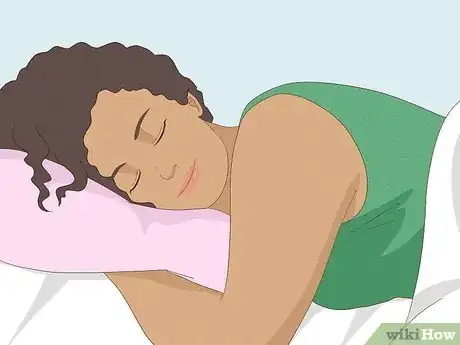
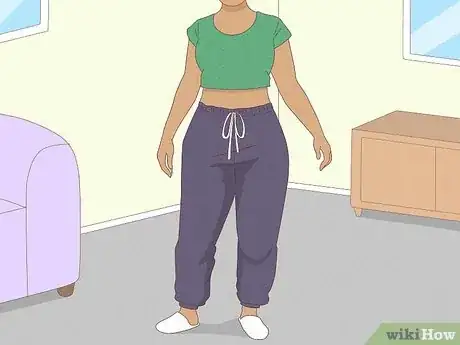
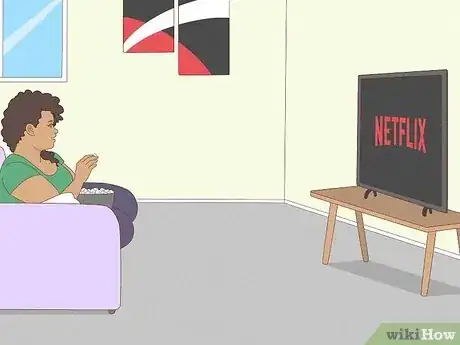


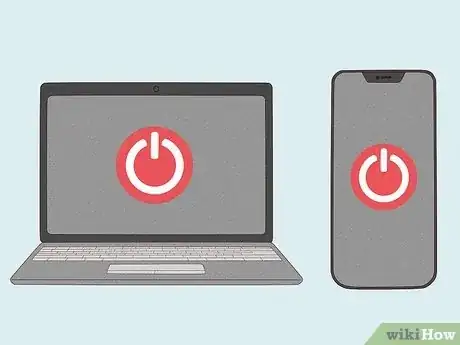



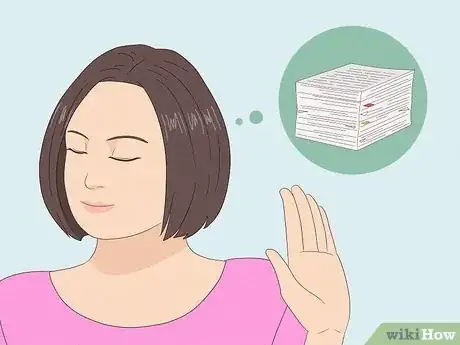
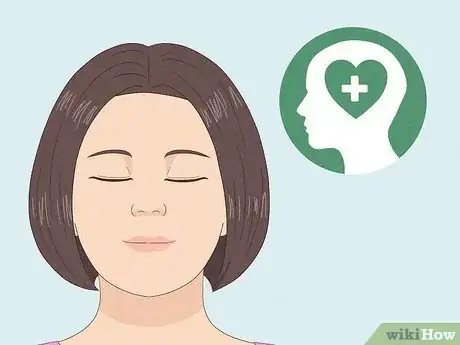
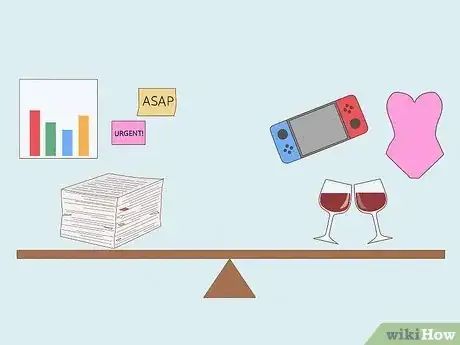











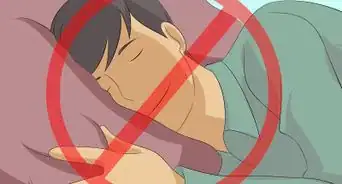
















































Medical Disclaimer
The content of this article is not intended to be a substitute for professional medical advice, examination, diagnosis, or treatment. You should always contact your doctor or other qualified healthcare professional before starting, changing, or stopping any kind of health treatment.
Read More...